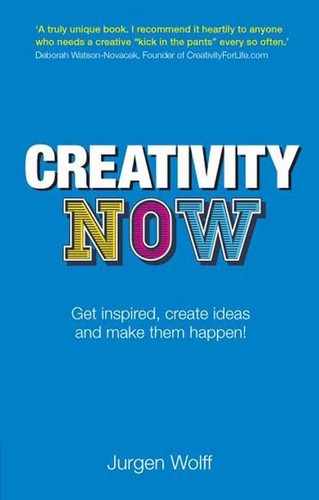THE PRINCIPLE
If you wait until the conditions are right, you’ll never move forward
In my workshops and coaching I’ve met a lot of people who have a great idea but have never done anything with it. When I ask them why, the answer is almost always a version of, ‘Because the conditions aren’t right.’
The conditions that aren’t right vary a lot. The person hasn’t had time to do all the research he needs to, or she doesn’t have enough money, or he doesn’t have enough time, or the economy is bad right now, or, or, or …
These are not conditions; these are excuses.
Making something that changes the world, even in a small way, is hard. Making excuses is easy. That’s why most people do the latter instead of the former. Now is a good time to switch sides.

The saying ‘Ready, fire, aim!’ acknowledges that we seldom have all the information we need or the ideal conditions. But if we move forward and try something, the real world will give us feedback. If we are off target, we adjust and try again. The most famous example of this is Thomas Edison and the number of filaments he went through before he found one that could be used for his light bulb. But actually this process is one that almost every business goes through on the way to success.
One example of a person who needed to learn this concept was an acquaintance who had an idea for a historical novel. Every time I ran into her over several years I’d ask how it was coming along. ‘I’m still doing the research,’ she said each time. She felt she had to become an expert in that period before she could write a single word. In contrast, a writer whose novels are set in the financial world told me how he does research: ‘I write until I get to something I don’t know, and then I look it up and keep writing.’ He also has an expert read his manuscript when he’s done the first draft to make sure he hasn’t got anything wrong.
This man has written half a dozen novels. The other person has written none. But she’s done a lot of research and by the time she dies, she’ll be an expert.
If you are not moving forward with your project, ask these questions:
- What would you need in order to move forward just one step?
- Where can you get it easily and quickly?
- If you can’t get it now, what other parts of the project can you work on?
- If you can’t get it now and you can’t work on any other parts of the project, what would happen if you moved forward anyway and came back and fixed the gaps later?
Yes, the conditions may not be ideal, you may have to blunder forward – but you’ll still be moving in the right direction.
